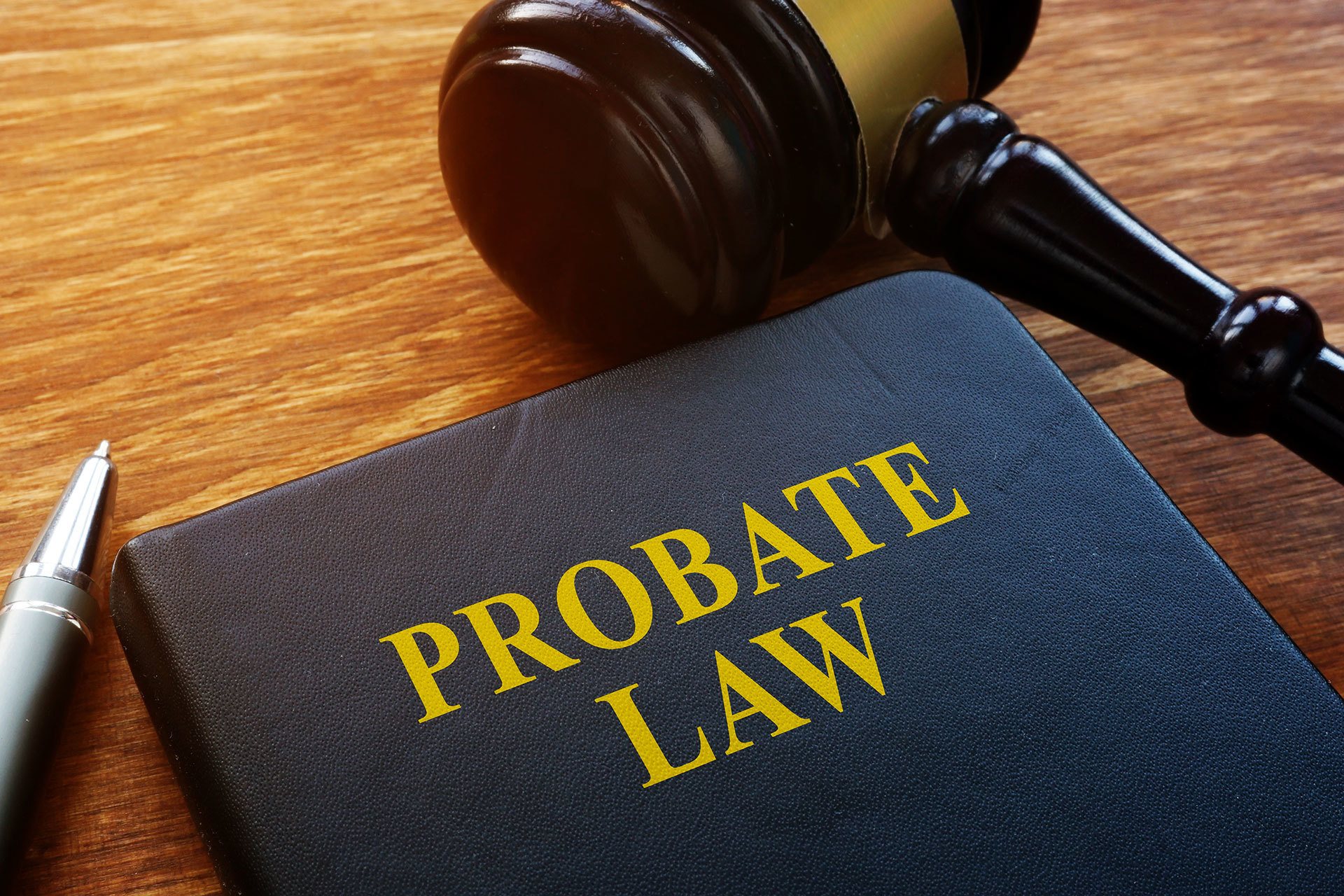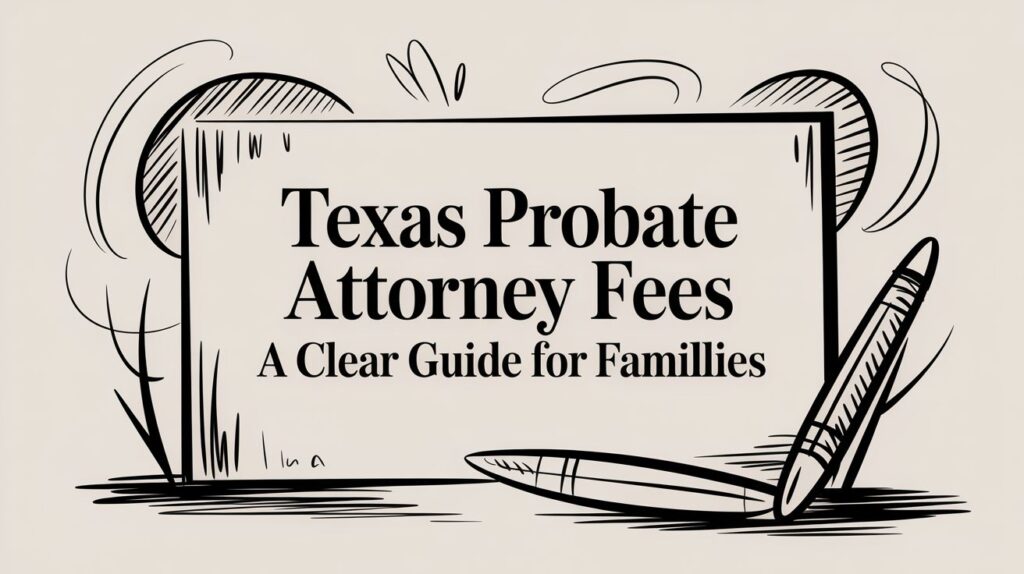How long can an estate stay in probate in Texas? It’s a question many families ask when they find themselves dealing with the emotional and legal fallout of a loved one’s passing. In Texas, the probate timeline can range from a few months to several years—depending on a wide variety of factors. While the legal process is designed to protect heirs and ensure proper distribution, it can also drag on if complications arise.
This article breaks down everything you need to know about the probate timeline in Texas. We’ll walk through real-life examples, share insights from Texas probate attorneys, and highlight what actually slows down the process—and what can speed it up. Whether you’re an executor, beneficiary, or simply planning ahead, understanding how long an estate can stay in probate in Texas is essential to managing expectations and responsibilities.

The Basics: What Is Probate and Why Does It Exist?
Before diving into the timeline, let’s quickly explain probate. Probate is the legal process by which a deceased person’s estate is administered and distributed. In Texas, probate ensures that debts are paid, assets are accounted for, and heirs receive what they’re entitled to. The process begins when someone—usually the executor named in the will—files an application to open probate in the appropriate court.
Probate is required when a person dies with assets in their name and no legal mechanism—like a trust or transfer-on-death deed—has been used to bypass the court system. If there’s a valid will, it guides distribution. If not, the estate is handled under Texas intestacy laws.
So, how long can an estate stay in probate in Texas? The answer starts with the type ofprobate process involved.
Real-Life Example: The Martin Family’s Mixed Timeline
Take the Martin family of Collin County. Their father passed away in early 2022, leaving a will and naming his daughter, Melissa, as the executor. The estate included a house, two vehicles, investment accounts, and a few personal debts.
Melissa hired an attorney and filed for probate within two weeks. The court admitted the will, issued letters testamentary, and Melissa began paying off debts and organizing assets. In just under six months, the estate was wrapped up and closed.
Contrast that with the story of her neighbor, Paul, whose brother died without a will. With multiple siblings disputing the estate and no designated executor, the process turned contentious. The probate lasted nearly two and a half years.
Both estates were in Texas. But their timelines? Worlds apart.
Typical Probate Duration in Texas
So what’s average? Generally, a simple, uncontested estate with a will can be fully probated in 6 to 12 months in Texas. However, if the estate is large, includes complex assets, or involves disputes among heirs or creditors, it could take 1 to 3 years—sometimes longer.
Here’s a rough breakdown of the timelines involved:
- 6–12 months: Straightforward estate, valid will, cooperative heirs, no debt disputes
- 1–2 years: Moderate complexity, such asreal estate sales, minor legal hiccups, or small disagreements
- 2+ years: Litigation, contested wills, creditor claims, or difficult-to-sell assets
So again, how long can an estate stay in probate in Texas? It could be done in half a year—or you could still be attending court hearings three years later.
Factors That Can Prolong Probate in Texas
Understanding the variables that impact the length of probate helps you better prepare. Here are the most common factors that drag things out:
1. No Will or Invalid Will
If the decedent died intestate (without a will), the court must identify all legal heirs through a process called heirship determination. This involves a formal application, appointment of an attorney ad litem, court hearings, and often testimony. It adds time—and cost.
Even when there is a will, if it’s unsigned, improperly witnessed, or challenged, it can delay the entire process.
2. Heir Disputes and Contested Wills
One of the biggest reasons estates linger in probate is infighting. If someone challenges the validity of the will, alleges fraud, or disputes the asset distribution, the case becomes a contested probate. This triggers court hearings, legal briefs, depositions, and sometimes a trial.
3. Creditor Claims
Texas law requires that creditors be given notice and a chance to file claims against the estate. This includes mortgage companies, credit card issuers, hospitals, and even Medicaid in certain situations. If the estate doesn’t have enough assets to cover the debts, disputes can arise over which debts take priority.
4. Real Estate or Business Interests
Selling a home or business during probate can be tricky. If the executor can’t sell the property quickly or if multiple people claim rights to it, probate drags out. The same goes for oil royalties, ranches, or commercial properties that aren’t easily divisible.
5. Uncooperative or Unavailable Heirs
In Texas, heirs must sometimes sign waivers or appear for hearings. If one lives out of state, can’t be located, or simply refuses to participate, that alone can extend the process for months.
6. Court Backlogs and Delays
Not every county probate court in Texas operates at the same speed. Some urban counties (like Harris or Dallas) have heavier dockets, which means longer wait times for hearings, rulings, or court approvals.

What Happens If Probate Takes Too Long?
Technically, there’s no hard legal deadline for closing an estate in Texas. However, executors are expected to act reasonably and efficiently. If heirs feel that the executor is dragging their feet or mishandling the estate, they can file a motion asking the court to intervene or remove the executor altogether.
In extreme cases, delayed probate can result in:
- Asset devaluation (like unpaid property taxes or home maintenance issues)
- Lapsed insurance policies
- Loss of records
- Family conflict or legal fees ballooning out of control
So if you’re wondering how long can an estate stay in probate in Texas, know this: it can stay open for years—but that doesn’t mean it should.
Steps to Speed Up the Probate Process in Texas
While you can’t always control every factor, there are several steps you can take to help ensure probate moves along efficiently.
1. File the Will Promptly
In Texas, the law requires that a will be filed within four years of the date of death. But waiting too long makes everything harder. The sooner you begin, the fewer complications arise with documentation and asset preservation.
2. Hire an Experienced Probate Attorney
Having an attorney who understands the local court’s preferences and the nuances of Texas probate law can help move things forward much faster. Mistakes or incomplete filings often result in costly delays.
3. Notify Creditors Early
Notifying creditors promptly allows them to submit claims within the legal timeframe. This helps close out liabilities quickly so the estate can be settled.
4. Maintain Good Communication with Heirs
Keep heirs informed. Disagreements often stem from misunderstanding, not malice. Regular updates, transparency, and professionalism can prevent disputes that extend the probate timeline.
5. Secure and Manage Assets Immediately
From insurance renewals to property maintenance, executors should secure assets as soon as possible. That includes retitling bank accounts, collecting rents, and managing investments until final distribution.

Real-Life Scenario: Probate Nightmare Avoided
Lena’s uncle passed away in San Antonio with a will that left everything to his three nieces. Because he owned multiple properties, Lena assumed the process would take years. But the executor—a cousin—had everything in order: the will was updated, the properties were insured, and an attorney was hired the week after the funeral.
Probate was opened in Bexar County within a month. Creditors were notified early. The executor worked closely with realtors to sell the properties quickly. The estate closed in under ten months—without a single court fight.
This kind of smooth process is only possible when people take probate seriously from day one.
What If You Don’t Probate at All?
You might be tempted to skip probate altogether, especially for small estates. But beware—failing to probate can lead to long-term complications. Without court orders or letters testamentary, heirs may not be able to:
- Sell or refinance property
- Access bank accounts
- Transfer vehicle titles
- Resolve tax matters
- Establish legal ownership of inherited assets
In Texas, title companies often refuse to recognize any transfer of real estate unless probate is completed or legally bypassed through an affidavit of heirship or small estate affidavit (only available in limited cases).
So again, how long can an estate stay in probate in Texas? It depends—but not opening probate at all creates far worse headaches down the road.
Alternatives That May Help Avoid Long Probate
One way to avoid lengthy probate is to plan ahead using probate-avoidance strategies. These include:
- Revocable living trusts
- Transfer-on-death deeds for real estate
- Payable-on-death designations for bank accounts
- Joint ownership with rights of survivorship
- Life insurance and retirement accounts with named beneficiaries

While these don’t work in every situation, they can significantly reduce the size of the estate that must pass through probate.
Final Thoughts: Know the Timeline, Prepare for the Process
So, how long can an estate stay in probate in Texas? The honest answer is—it varies. The process can be efficient and close within a few months, or it can stretch into years of court dates, family drama, and costly delays. But most of the time, the length of probate depends on how well the estate was prepared and how diligently the executor carries out their responsibilities.
If you’re an heir, an executor, or just planning ahead for your own estate, don’t leave things to chance. Understand the rules. Work with professionals. And most of all, don’t wait until things go wrong to start asking questions.








